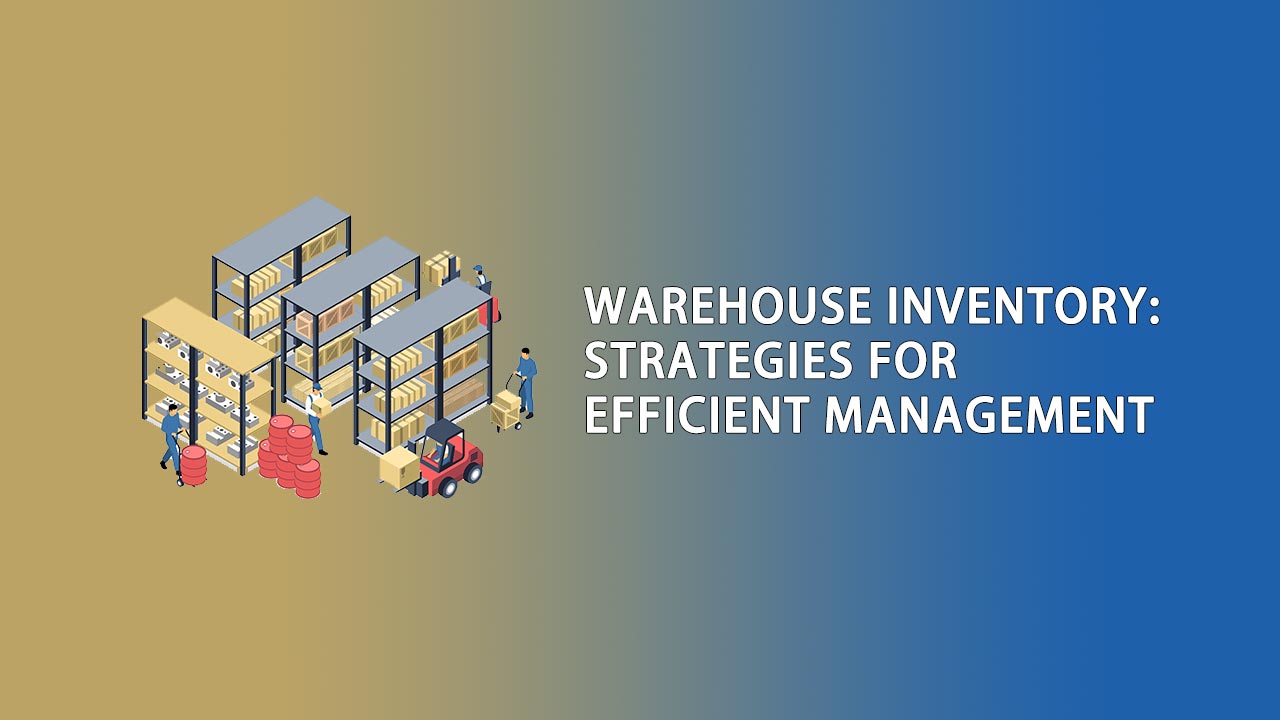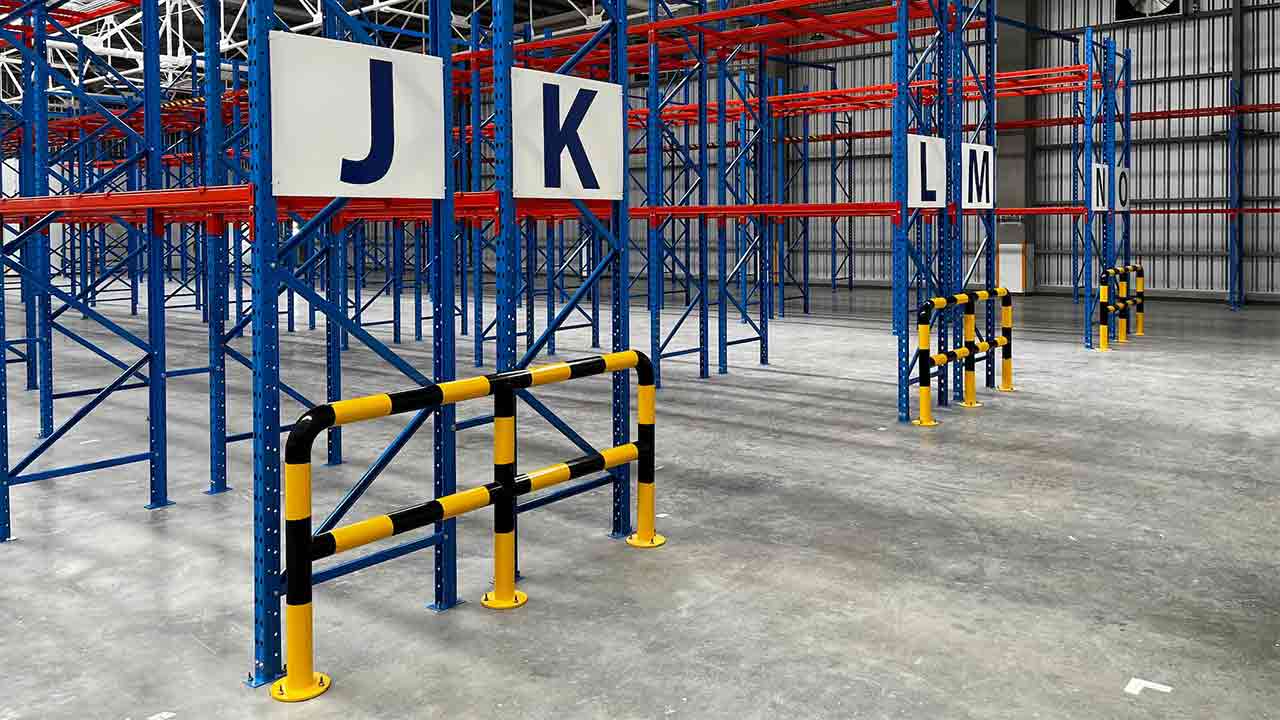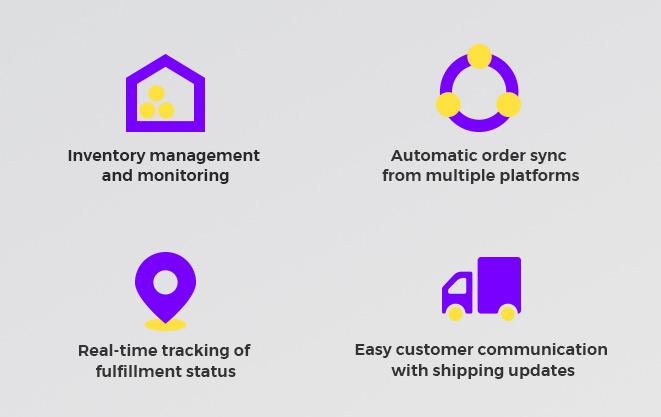Warehouse inventory management plays a crucial role in the success of any business. As companies experience growth in product development and increased units sold, managing inventory strategically becomes even more vital yet challenging. With the right combination of strategic approaches and technological solutions, businesses can gain a competitive edge and drive long-term success. Here is everything you need to know about effectively managing warehouse inventory, from overcoming challenges to implementing best practices, empowering you to streamline operations, meet customer demands, and unlock new opportunities for growth.

| Table of Content |
Part 1. Warehouse Inventory Management Explained
Effective warehouse inventory management is the cornerstone of efficient and successful business operations. It involves the systematic control and oversight of the inventory stored within a warehouse or distribution center. By implementing robust inventory management practices, businesses can optimize their supply chains, minimize costs, and improve customer satisfaction.

At its core, warehouse inventory management encompasses various tasks and processes, including inventory tracking, storage, replenishment, and order fulfillment. It ensures that the right products are available in the right quantities, at the right time, and in the right condition to meet customer demands.
Additionally, effective warehouse inventory control plays a crucial role in maintaining accurate stock levels, preventing stockouts or overstock situations, and maximizing operational efficiency.
Part 2. The Pros of Warehouse Inventory Management

1. Ensuring Customer Satisfaction
It allows businesses to maintain adequate stock levels to fulfill customer orders promptly and avoid stockouts. By accurately tracking inventory levels, companies can proactively reorder products, minimizing the risk of running out of stock and disappointing customers.
2. Space Optimization and Cost Efficiency
Effective warehouse inventory control helps optimize storage space utilization. Warehouses have limited space, and efficient utilization is crucial to minimize costs associated with excessive storage. By implementing inventory control measures such as organizing products based on demand, implementing efficient storage systems, and utilizing technology-driven solutions, businesses can maximize storage capacity and reduce operational expenses.
3. Enhancing Accuracy and Efficiency
Warehouse inventory management enables businesses to exercise better control over inventory accuracy, reducing errors. Through inventory control measures like cycle counting, barcode scanning, and real-time tracking systems, accurate inventory records are ensured, discrepancies are minimized, and overall operational efficiency is improved. By anticipating the unexpected, businesses can proactively navigate unforeseen challenges, maintaining smooth operations.
Part 3. Warehouse Management vs. Inventory Management: Understanding the Differences

When it comes to efficient operations within a warehouse, it is essential to distinguish between warehouse management and inventory management. While these terms may seem interchangeable, they represent distinct aspects of the overall logistics process. Understanding the differences between warehouse management and inventory management is crucial for optimizing warehouse operations and achieving seamless supply chain management.
1. Warehouse management
Warehouse management primarily focuses on the physical aspects of the warehouse, encompassing activities such as layout planning, space utilization, and resource allocation. It involves organizing the warehouse space, establishing efficient workflows, and managing personnel to ensure smooth day-to-day operations. Warehouse management aims to maximize efficiency in tasks such as receiving, put-away, picking, packing, and shipping of goods.
2. Inventory management
Inventory management, on the other hand, is concerned with the strategic control and monitoring of inventory levels within the warehouse. It involves managing the inventory lifecycle, from procurement to storage and distribution. Inventory management focuses on maintaining optimal stock levels, avoiding stockouts and overstocking, and ensuring accurate inventory records. Key tasks in inventory management include demand forecasting, order planning, inventory replenishment, and tracking product movements.
While warehouse management and inventory management are distinct, they are closely interconnected. Efficient warehouse management relies on accurate inventory information and timely inventory replenishment to ensure smooth operations. Conversely, effective inventory management requires efficient warehouse processes to ensure accurate inventory counts, minimize handling errors, and optimize storage space utilization.
Warehouse inventory control serves as a bridge between warehouse management and inventory management. It involves implementing control measures and technologies to track inventory, manage stock levels, and reduce discrepancies. Barcode scanning, RFID tagging, and inventory tracking systems are commonly used in warehouse inventory control to enhance accuracy, streamline operations, and improve inventory visibility.
Part 4. How to Manage Warehouse Inventory
Effective management of warehouse inventory is crucial for growing businesses to ensure smooth operations and meet customer demands seamlessly. Implementing a reliable Warehouse Management System empowers businesses with advanced tools and automation, improving overall warehouse performance.

1. What is a warehouse management system?
A warehouse management system (WMS) is a software program that helps businesses oversee and manage their warehouse operations on a daily basis. It helps ensure inventory is received, stored, picked, packed, and shipped in an efficient way.
By automating tasks and providing real-time visibility, WMSs reduce the risk of mistakes associated with manual tracking. By automating tasks, WMSs optimize workflows and minimize downtime, allowing businesses to operate at their peak performance and achieve higher levels of efficiency throughout their operations.
2. Types of warehouse management systems
The choice of WMS depends on factors such as your business’s specific requirements, objectives, and desired outcomes. Various options are available to ensure that you can select the most suitable WMS solution that aligns perfectly with your organization’s needs and goals.
Standalone WMS
Standalone WMSs are specifically designed to handle a limited number of supply chain processes.
Integrated WMS
integrated WMSs effectively manage a wide range of supply chain processes, encompassing not only inventory and warehouse management but also various external operations.
Cloud-based WMS
A cloud-based WMS uses a web application and stores data in an online cloud, eliminating the need for dedicated hardware components.
On-site WMS
On-site WMSs rely on a digital application, with servers hosted and managed directly by the warehouse.
3. Benefits of a warehouse management system
Experience the benefits of a highly automated warehouse, where manual rework is minimized, allowing you to focus on growing your business with confidence.
Increased Productivity: A WMS automates warehouse tasks, streamlines processes, and optimizes resource allocation, boosting overall productivity and allowing employees to focus on value-added activities.
Improved Accuracy: With barcode scanning, real-time tracking, and automated data entry, a WMS ensures more accurate inventory management, reducing errors in order fulfillment and improving customer satisfaction.
Faster Operations: A WMS enables faster order processing, picking, packing, and shipping through real-time inventory visibility, optimized workflows, and efficient task management, resulting in reduced order turnaround time.
Cost Savings: By optimizing inventory levels, minimizing stockouts, and improving efficiency, a WMS helps reduce carrying costs, storage expenses, labor costs, and rework, leading to overall cost savings and improved profitability.
4. Optimize Your Warehouse Inventory with NextSmartShip
When it comes to effective warehouse inventory management, NextSmartShip’s cutting-edge Warehouse Management System (WMS) is designed to meet your needs. Our best-in-class WMS enables you to efficiently manage inventory in real time, minimize errors in picking, packing, and shipping, and seamlessly scale your operations.

Get Custom Solutions
Additionally, NextSmartShip offers the advantage of leveraging our global fulfillment network, allowing you to optimize cross-border shipping, reduce expenses, and expedite order deliveries. Take the next step in enhancing your warehouse management by requesting pricing details for our WMS.
FAQs
1. How do I choose the right Warehouse Management System for my business?
When selecting a Warehouse Management System for your business, there are several factors to consider:
- Size and complexity of warehouse operations: Assess the size of your warehouse, the number of SKUs, and the complexity of your operations. Choose a Warehouse Management System or WMS that can handle your current volume and has the scalability to accommodate future growth.
- Specific business needs: Identify your specific requirements, such as inventory tracking, order management, integration with other systems, and reporting capabilities. Look for a WMS that aligns with your unique needs.
- Budget: Determine your budget for implementing a WMS. Consider both upfront costs and ongoing expenses, such as licensing fees, maintenance, and support. Choose a WMS that offers a good balance between features and affordability.
2. What are the common challenges businesses face in warehouse inventory management?
- Space Utilization: Efficiently utilizing warehouse space is crucial to optimize storage capacity and minimize costs associated with excessive storage or underutilized space.
- Demand Forecasting: Predicting customer demand accurately is essential for managing inventory levels and avoiding stockouts or excessive inventory.
- Order Fulfillment Efficiency: Ensuring timely and accurate order fulfillment can be complex, involving efficient picking, packing, and shipping processes to meet customer expectations.
- Inventory Visibility: Gaining real-time visibility into inventory levels and locations throughout the warehouse is vital for effective management and decision-
3. Is a Warehouse Management System suitable for a newly opened business?
Yes, a Warehouse Management System or WMS can be beneficial for newly opened businesses as it helps establish efficient warehouse operations from the start. By implementing a WMS, you can effectively manage your inventory, streamline order processing, and ensure accurate stock control. It enables you to scale your business operations smoothly, avoid inventory management challenges, and provide a seamless customer experience right from the beginning.
Conclusion
Efficient warehouse inventory management is essential for businesses to ensure smooth operations, meet customer demands, and drive growth. By understanding the differences between warehouse management and inventory management, businesses can develop integrated strategies that optimize both warehouse operations and inventory control. With NextSmartShip, you can benefit from advanced warehouse management systems, seamless order processing, and global fulfillment services. Experience the convenience and efficiency of NextSmartShip by visiting our website. Contact our team of experts today and let us be your partner in achieving exceptional warehouse inventory management.




